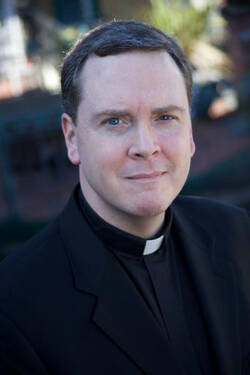In mid-October, four of the leading experts on the life and work of Flannery O’Connor gathered at Saint Joseph’s Seminary in Yonkers, N.Y., to discuss the Christian witness of the Southern Gothic writer, who died 50 years ago last summer. The symposium was co-sponsored by the seminary and America, the first in a series of events on Catholic literature, politics and the papacy. It was an honor to enjoy the company of these two women and two men, one of whom, Professor Bill Sessions of Georgia State University, was a longtime friend of O’Connor.
I must admit that when I first read Wise Blood, Ms. O’Connor’s first novel and my introduction to her work, it left me cold. Where are the joy and peace that come from a conscious, living relationship with God and his church? Flannery O’Connor’s stories, it seemed to me, were too brooding and violent, so different from the “buddy Jesus” I had encountered in C.C.D. in the years immediately following the Second Vatican Council.
Even stranger, it seemed, I had been assigned the book in my very first theology class at Weston Jesuit School of Theology in Cambridge, Mass., where I studied briefly in the year before I entered the Jesuits.
Then, as is so often the case, events both confused and clarified my thinking. Our first class meeting was held on Sept. 12, 2001. Much like Hazel Motes, the protagonist of Wise Blood, we had been through the most ferocious storm and were suffering from exposure to the elements. As we discussed the horrifying events of the day before, I began to understand why we would begin our studies with a work by Flannery O’Connor. “Where was God yesterday,” we were all asking. How could he let it happen? “God was there,” one woman said, “in the hearts of the first responders and the other courageous men and women who gave their lives for ‘friends’ they didn’t even know.”
Flannery O’Connor would have agreed with that. She understood, contrary to what the neo-Scholastic philosophers were then teaching, that there is not a radical dissimilitude between the orders of grace and nature, between the exalted world of the supernatural and the mundane world of the here and now. In the time and space between the resurrection and the second coming, Ms. O’Connor knew, the world is largely one big mess. It can be hard to tell where the City of Man ends and the City of God begins.
The goal of discipleship, then, is not to have the right idea about God or to get every decision right, for our faith is ultimately not a set of propositions but a set of performances. To borrow a phrase from William T. Cavanaugh, our task as Christians is to enact the comedy of redemption amid the tragedy of the world. By “comedy,” of course, I do not mean slapstick or mere irreverance, but the kind of performance that subverts our this-worldly ways, acts that make real the truth that we only win in any ultimately meaningful way by losing. Our power, in other words, lies in our powerlessness, gloriously transformed into transformative acts by the awful grace of God.
The strikingly different or unusual, therefore, as Judith Valente notes in her dispatch from Chicago in this issue, is often the way God reveals something essential. It is much like standing in front of a funhouse mirror; the distortion affords us a perspective we would otherwise never have and by that very fact allows us to glimpse the truth in a new way. It does not mean that we must abandon long-held ideas or church teachings about what it means to be human. It simply means that being human is not an idea but an experience that is at once universal and peculiar. Messiness, in other words, whether in Chicago or in Rome, is not to be feared, for it is not a detour but the path itself.








